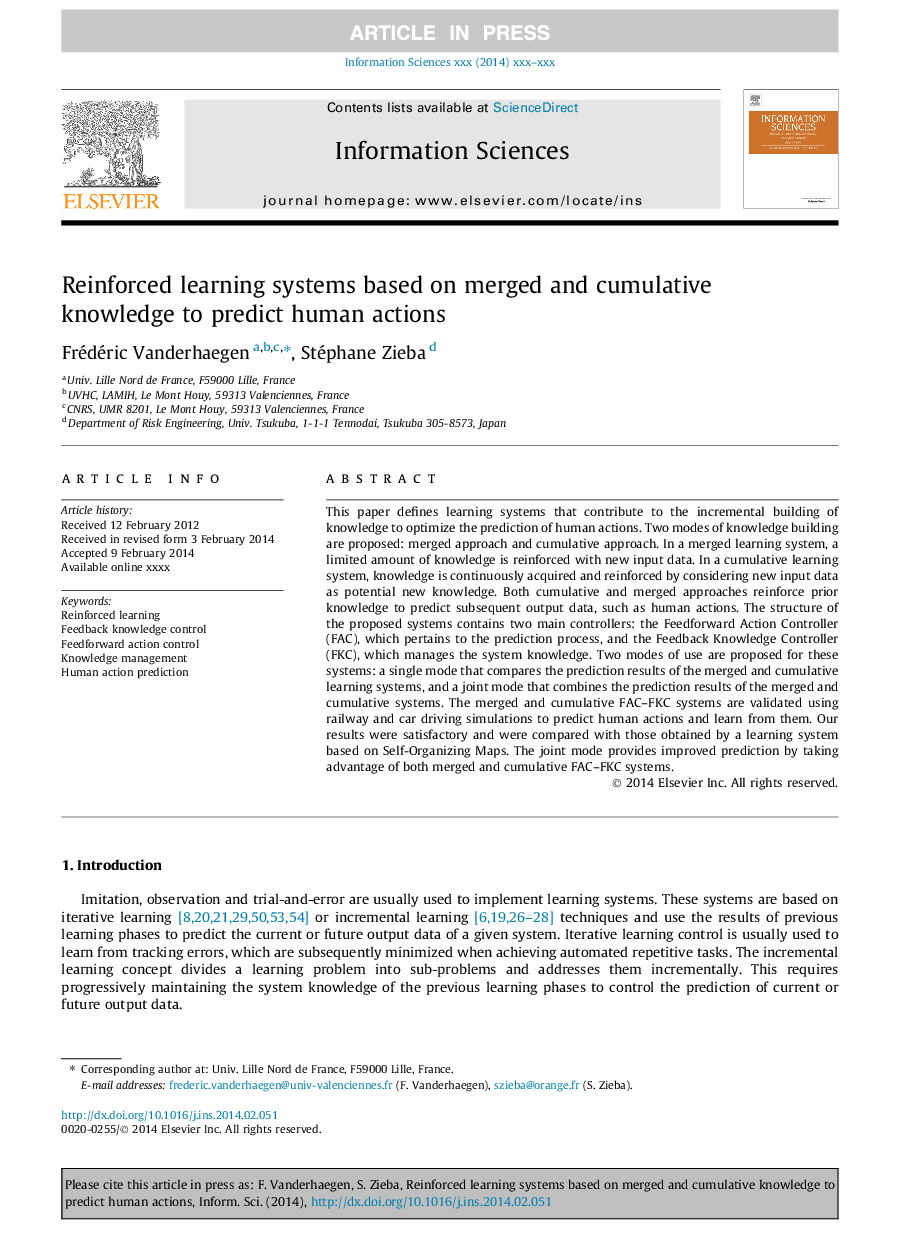| Article ID | Journal | Published Year | Pages | File Type |
|---|---|---|---|---|
| 6858182 | Information Sciences | 2014 | 14 Pages |
Abstract
This paper defines learning systems that contribute to the incremental building of knowledge to optimize the prediction of human actions. Two modes of knowledge building are proposed: merged approach and cumulative approach. In a merged learning system, a limited amount of knowledge is reinforced with new input data. In a cumulative learning system, knowledge is continuously acquired and reinforced by considering new input data as potential new knowledge. Both cumulative and merged approaches reinforce prior knowledge to predict subsequent output data, such as human actions. The structure of the proposed systems contains two main controllers: the Feedforward Action Controller (FAC), which pertains to the prediction process, and the Feedback Knowledge Controller (FKC), which manages the system knowledge. Two modes of use are proposed for these systems: a single mode that compares the prediction results of the merged and cumulative learning systems, and a joint mode that combines the prediction results of the merged and cumulative systems. The merged and cumulative FAC-FKC systems are validated using railway and car driving simulations to predict human actions and learn from them. Our results were satisfactory and were compared with those obtained by a learning system based on Self-Organizing Maps. The joint mode provides improved prediction by taking advantage of both merged and cumulative FAC-FKC systems.
Keywords
Related Topics
Physical Sciences and Engineering
Computer Science
Artificial Intelligence
Authors
Frédéric Vanderhaegen, Stéphane Zieba,
